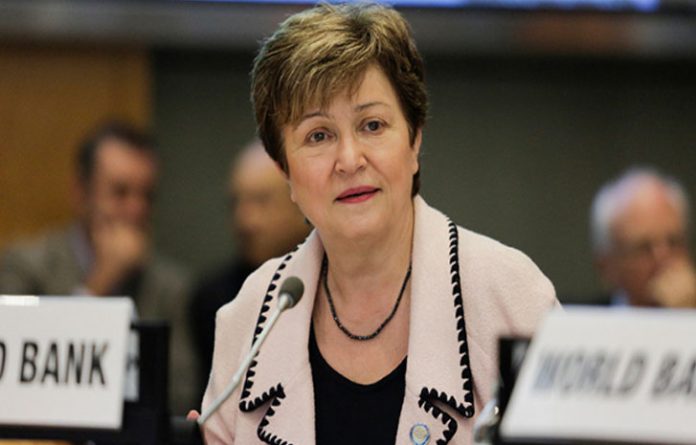The International Monetary Fund (IMF) thinks one of Nigeria’s major challenges is how to prioritise revenue deployment for developmental purposes.
IMF’s African Department Director, Mr. Abebe Aemro Selassie said the government has enough resources that it can devote, really, the infrastructure; building the network of universities, and public education entities, that Nigeria so badly needs.
“I think the challenges are, really, well-known and articulated really well in the government’s economic growth and recovery plan,” he said in a virtual press conference on the sideline of the ongoing IMF/World Bank Spring, adding, “So, for the medium-term, the challenge for Nigeria, we feel, is really prioritizing revenue mobilization. So, that really is the number 1 medium-term priority.”
Selassie said the focus, “we feel, has to be over the next 4 or 5 years to try and put Nigeria in a position where the Federal government has sufficient revenues to address the development spending needs the country has.”
In the near-term, the firm said, no resource should be spared to be able to put the health crisis, the health threat that Nigeria faces from the COVID-19 pandemic. He adviced that Nigeria should use the rapid financing instrument it has requested from IMF to strengthen health spending to provide social protection to her people.
On the question of what top long-term monetary and fiscal policy measures would cushion against unexpected return on external shocks, Mr. Selassie stated that Nigeria and other African countries hardly hit by the Coronavirus pandemic would need extraordinary type of policy interventions to come out of the COVID-19 hangover.
Against the difficult backdrop from the Coronavirus pandemic, he said several urgent and decisive measured are needed to limit the humanitarian and economic cost of this crisis. “The immediate priority is to do whatever it takes to protect people’s health, boosting health spending as needed regardless of fiscal space concerns,” Selassie added.
IMF said it sees a significant role for fiscal policy in this crisis to mitigate the impact of the crisis. It said targeted cash transfers and similar measures to support people whose livelihoods are being upended by the containment and mitigation measures governments adopted are needed. “Where feasible, consideration also needs to be given to temporary and targeted support for hard-hit small and medium scale enterprises,” he added.
Mr Selassie said looser monetary policy can complement fiscal efforts and financial measures can help minimize credit or liquidity disruptions for businesses. He urged that, countries with flexible exchange rates can consider a combination of currency movement and the drawdown on reserves, while countries facing sizeable and disorderly outflows might consider temporary capital flow measures as part of a wider policy package. This crisis is unprecedented and equally calls for bold and decisive support from the international community.


